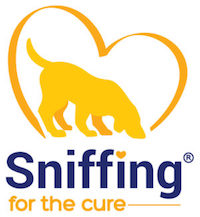Do you regularly enjoy the scents of essential oils wafting to you from an oil diffuser? What about your dog?
Aromatherapy has been practiced for thousands of years, but in the last decade, there has been an incredible growth of this practice. It has been advertised to reduce anxiety, enhance energy and induce relaxation in people. Although these practices are pleasant to humans, few scientific studies have looked at the use and effect of aromatherapy on pets.
Pets and people are different in how they react to essential oils. What is safe for use around humans is not necessarily safe to use on or near our pets. 100% concentrated form of essential oils can be dangerous for pets. Not all essential oils are safe. Some oils can cause skin irritations and others can cause liver damage. Also, the concentration level of the essential oil determines how toxic it can be to your dog. For example, few drops (7-8 drops) of concentrated form of tea tree oil can be harmful to your pet. Skin application of 100% concentrated tea tree oil can cause liver failure in cats.
Since the concentration and formulation of these products are not regulated, it is best to not directly apply 100% essential oils from aromatherapy products on your pet, especially on broken skin. Most veterinary experts advise against using them topically. These compounds can be quickly absorbed into the bloodstream and damage vital organs. Some common oils, including eucalyptus, tea tree, and pennyroyal can damage the liver if ingested. Below are some essential oils that can be harmful to dogs if ingested or when coming into contact with the skin:
🐾 Tea tree
🐾 Cinnamon
🐾 Citrus (d-limonene)
🐾 Eucalyptus
🐾 Pennyroyal
🐾 Pine
🐾 Sweet birch
🐾 Wintergreen
🐾 Ylang ylang
So, what about using an oil diffuser?
A dog’s sense of smell is about thousands or tens of thousands of times more sensitive than ours. Therefore, what smells good to you may be overwhelming for your pup. If you use the diffuser occasionally and at low concentrations of the essential oil, most likely your dog will be fine. But if your dog has a history of breathing problems, it is best to avoid using a diffuser. If you do decide to keep using your diffuser, ensure that your pet cannot reach it or knock it over. This is mainly to prevent your dog from eating or absorbing the oil through the skin.
Some of the symptoms associated with essential oil poisoning include:
🐾 Muscle tremors
🐾 Weakness
🐾 Difficulty in walking
🐾 Low body temperature
🐾 Excessive salivation
🐾 Vomiting
🐾 Excessive pawing at mouth or face
🐾 Drooling
🐾 Diarrhea
🐾 Depression
🐾 Low body temperature (in severe cases)
If your dog inadvertently inhaled, consumed by licking or eating the substance, or absorbed through the skin, call your veterinarian or Pet Poison Helpline (855-764-7661) right away.
Safety tips to remember
🐾 It is best not to apply highly concentrated oils to pets.
🐾 If your dog has an underlying health problem, particularly a respiratory issue, it may be best to avoid use of essential oil diffusers in the household.
🐾 If using a diffuser make sure they are out of reach of pets.
Since there are significant variations in toxicity among specific oils, it is best to discuss with your veterinarian before using these products around your pup.

Please note that no essential oils were used with the diffuser when Emma posed for these photos.





No Comments